Fireflies (or lightning bugs) are one of my all-time favorite things about summer in the Midwest. It can be brutally hot and humid here during the long summer days, but something magical happens at dusk. As the heat fades away and the sun casts long shadows over the yards, you can start to see the faint twinkling of fireflies coming out to play. Today, a few members of our Creative Team are sharing some of our favorite stories, childhood memories, and parenting moments involving fireflies. We hope you enjoy these stories and have the opportunity to experience fireflies for yourself. And be sure to stick around to the end because we’ve got a great list of firefly books for kids and an educational resource on fireflies!
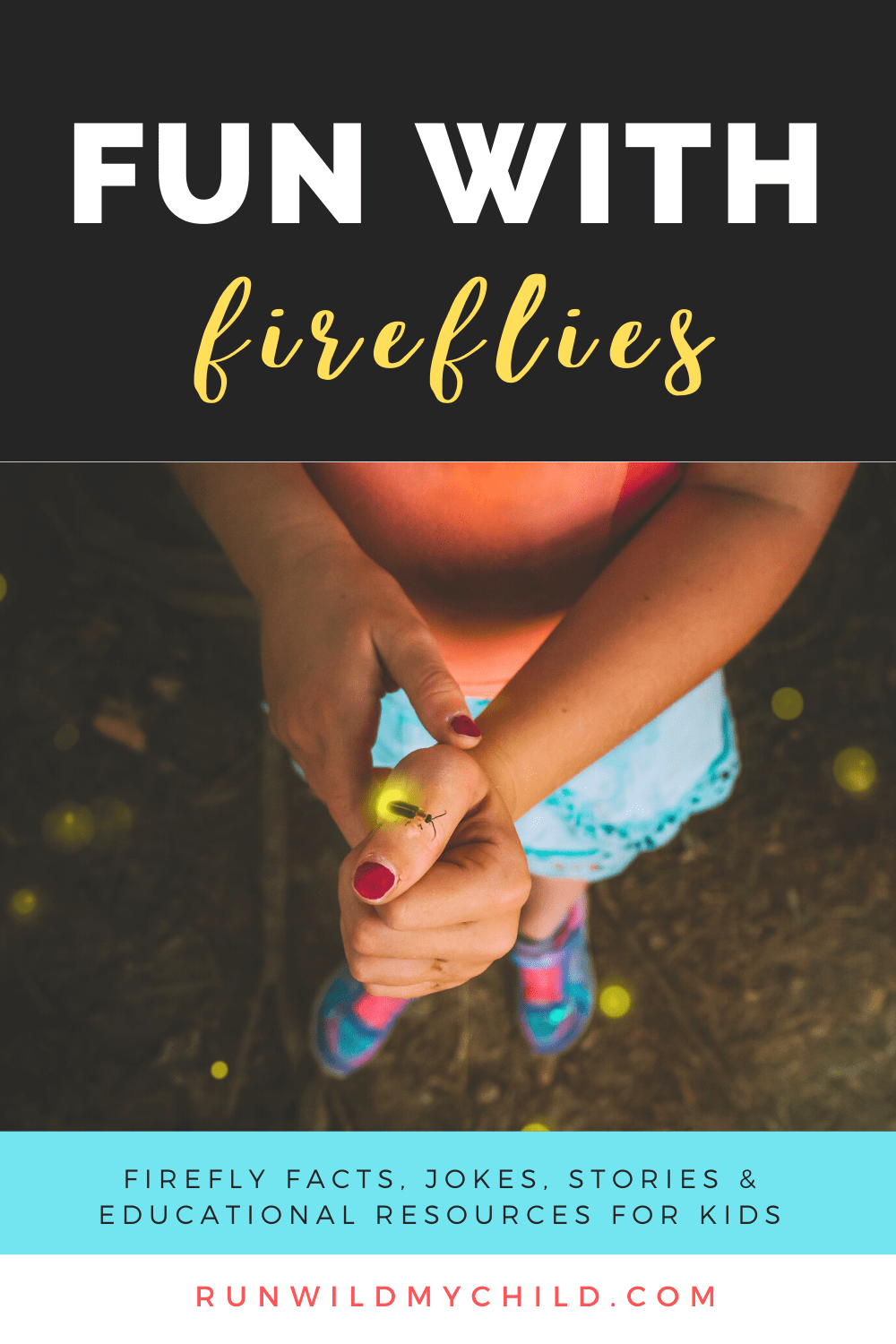
Firefly facts
Scientific Name/Family: Lampyridae (fireflies) in the order Coleoptera (beetles)
Description: There are approximately 175 firefly species in North America and Northern Mexico. The adults of most species are readily identified by their brown or black, soft bodies, somewhat leathery forewings, and a usually red or orange pronotum (a shieldlike plate) that covers the head from above. The last few segments of the abdomen are pale yellow and can glow yellow, green, or sometimes red, depending on the species. They are the only flying, bioluminescent insects.
Larvae: The larvae, called glowworms, are wingless. They don’t blink, but they do glow continuously and can be seen on the ground, especially in moist areas near grass and brush.
Size: About ¾ inch in length.
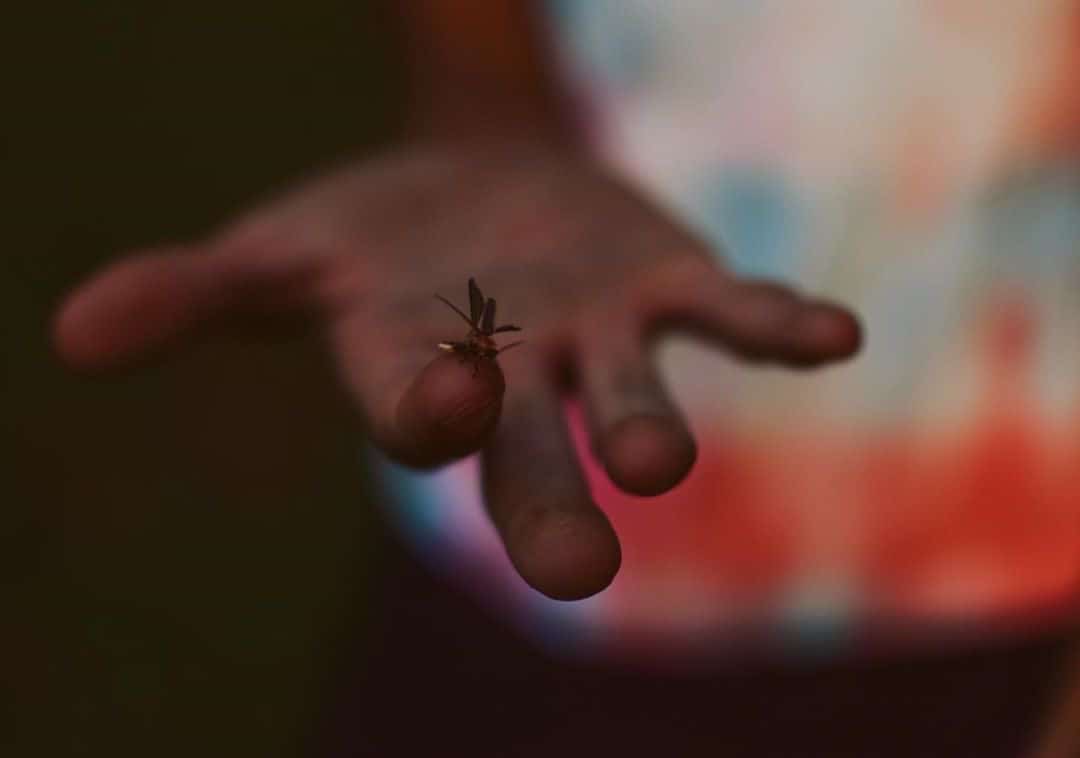 Image credit: @a.splendid.life
Image credit: @a.splendid.life
Fun firefly facts for kids
Fireflies are not flies at all – they’re in the beetle family. These beetles are special in that most of them have bioluminescence, the ability to produce light! They are sometimes called lightning bugs or forest stars. There are about 200 different species, most of which are nocturnal.
A chemical reaction within the firefly’s light organ produces the light—oxygen combines with calcium, adenosine triphosphate (ATP—the energy-carrying molecule of all cells) and a chemical called luciferin, when an enzyme called luciferase is present.
Fireflies are usually brown or black with yellow and red marks. Firefly light can be yellow, green or orange. Each species of firefly has its own flash pattern.
Male adult fireflies fly through the air and search for females with a species-specific light display. Some flash only once. Some emit “flash trains” of up to nine carefully timed pulses. Others fly in specific aerial patterns, briefly dipping before sharply ascending and forming a “J” of light. A few even shake their abdomens from side to side and appear to be twinkling. Some adult male firefly species mimic the courtship signals of others, lure in prospective “mates,” and then eat them.
Simultaneous bioluminescence is an incredible phenomenon where all the fireflies flash at the same time! This only happens in two places in the entire world: the Great Smoky Mountains National Park in eastern Tennessee and southeast Asia. No one knows why!
These beetles overwinter as larvae and in spring they metamorphose into adults. Firefly larvae are voracious predators with jaws equipped with toxin to help them overpower snails, slugs, earthworms, and other prey. Adults eat a variety of foods, depending on the species. The firefly larvae also flash their lights to warn predators that they have chemicals that make them taste bad (and can be poisonous).
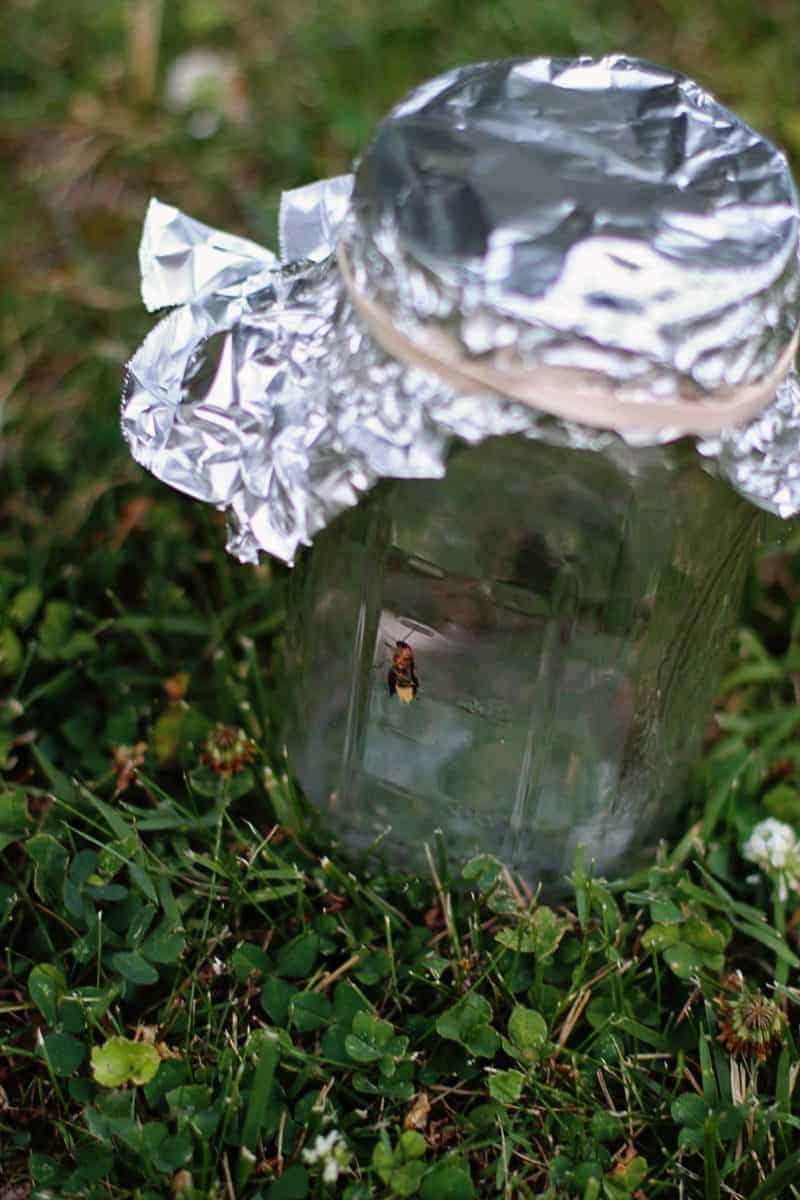 Image credit: @sara_mccarty
Image credit: @sara_mccarty
Benefits of fireflies
Beyond the entertainment and awe that fireflies induce (for kids and adults alike) on dry summer nights, fireflies are beneficial insects. The larvae help control the population of the various invertebrates they pray on, such as snails and slugs (banes to the gardener). Many scientists use luciferase (the bioluminescent enzyme) in gene research, as a way to observe biological processes, and in forensic research.
There’s even an old-time Ozark tradition that held that the appearance of fireflies meant that cold weather was over and it was safe to set out tomato plants.
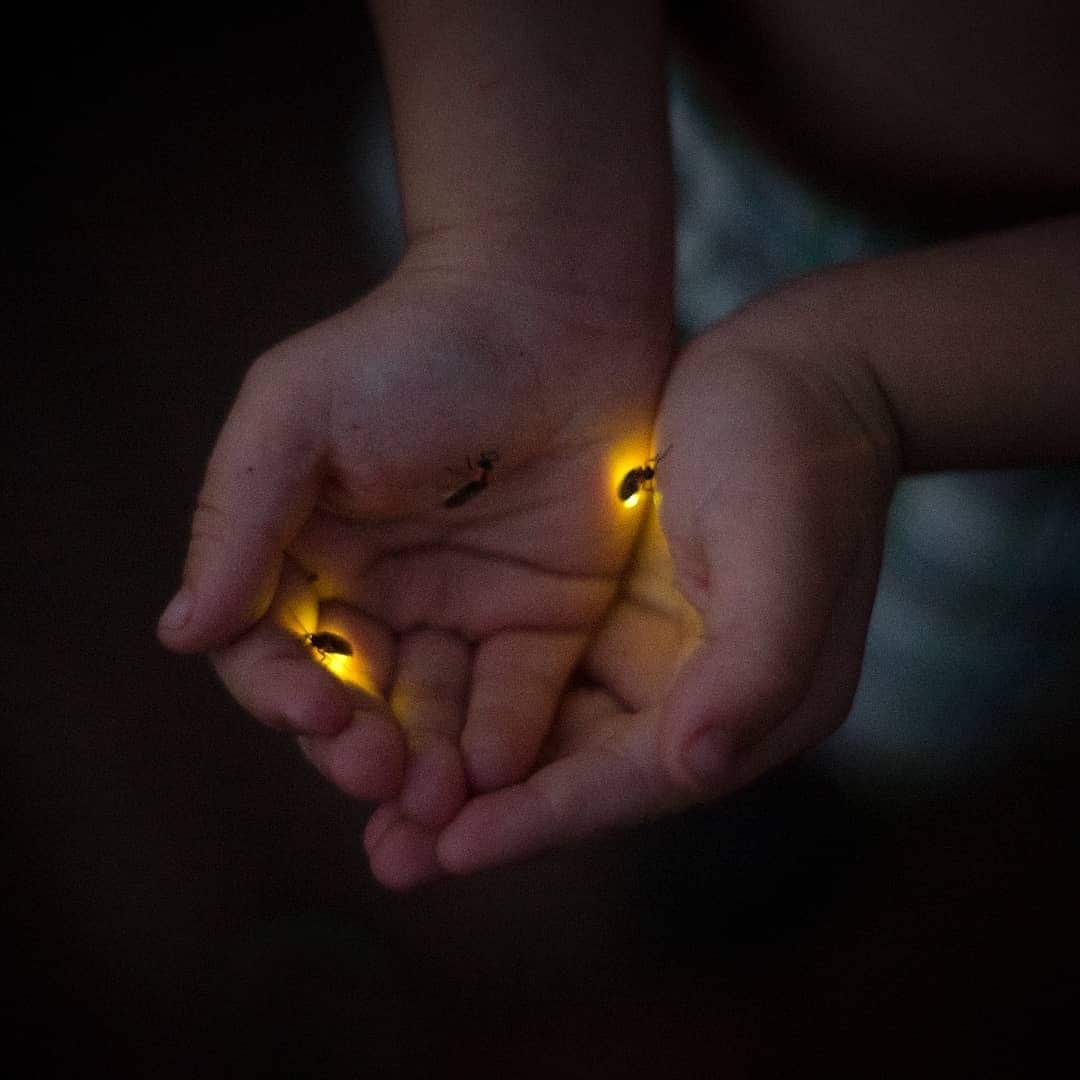 Image credit: @robbs_rule
Image credit: @robbs_rule
When and where to see fireflies
Fireflies are nocturnal and crepuscular (active at dawn and dusk). They are usually seen in spring and summer, when the winged adults fly, the bioluminescent tips of their abdomens winking on and off.
Fireflies live in warm or tropical climates in the United States, Latin America, Caribbean islands, and Southeast Asia. In the US, they only live east of the Rocky Mountains. Fireflies like to live in damp (forests, marshes, leaf piles) and dry (backyards, meadows) areas. They’re commonly seen in meadows, yards, edges of forests, and around streams.
If you want to encourage fireflies in your area, avoid using broad-spectrum insecticides.
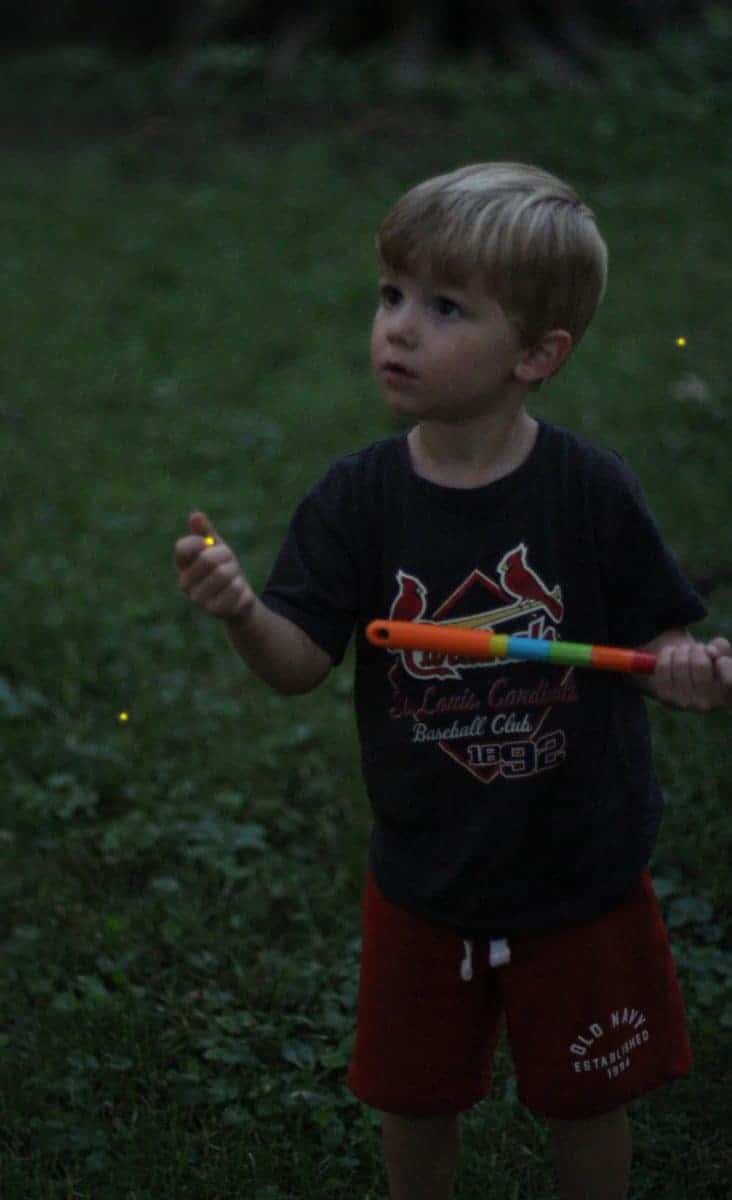
Help save the fireflies
Unfortunately, the firefly population is decreasing across the globe. When luciferase was first discovered, the only way to obtain the chemical was from fireflies themselves. Today, synthetic luciferase is available, but some companies still harvest fireflies, which may be contributing to their decline. Other factors that may be contributing to firefly decline include light pollution and habitat destruction—if a field where fireflies live is paved over, the fireflies don’t migrate to another field; they just disappear forever.
However, you can help!
Firefly Watch
Mass Audubon has teamed up with Tufts University researchers to track the firefly population and these amazing insects’ fate. With our help, they hope to learn about the geographic distribution of fireflies and what environmental factors impact their abundance.
Firefly Watch combines an annual summer evening ritual with scientific research. Join a network of citizen scientists around the country by observing your own backyard, and help scientists map fireflies.
Anyone in North America can participate in Firefly Watch. All you need to do is spend at least 10 minutes once a week during firefly season observing fireflies in one location (your backyard or in a nearby field). All firefly sightings—or lack thereof—are valuable! For more information on how to help, click here.
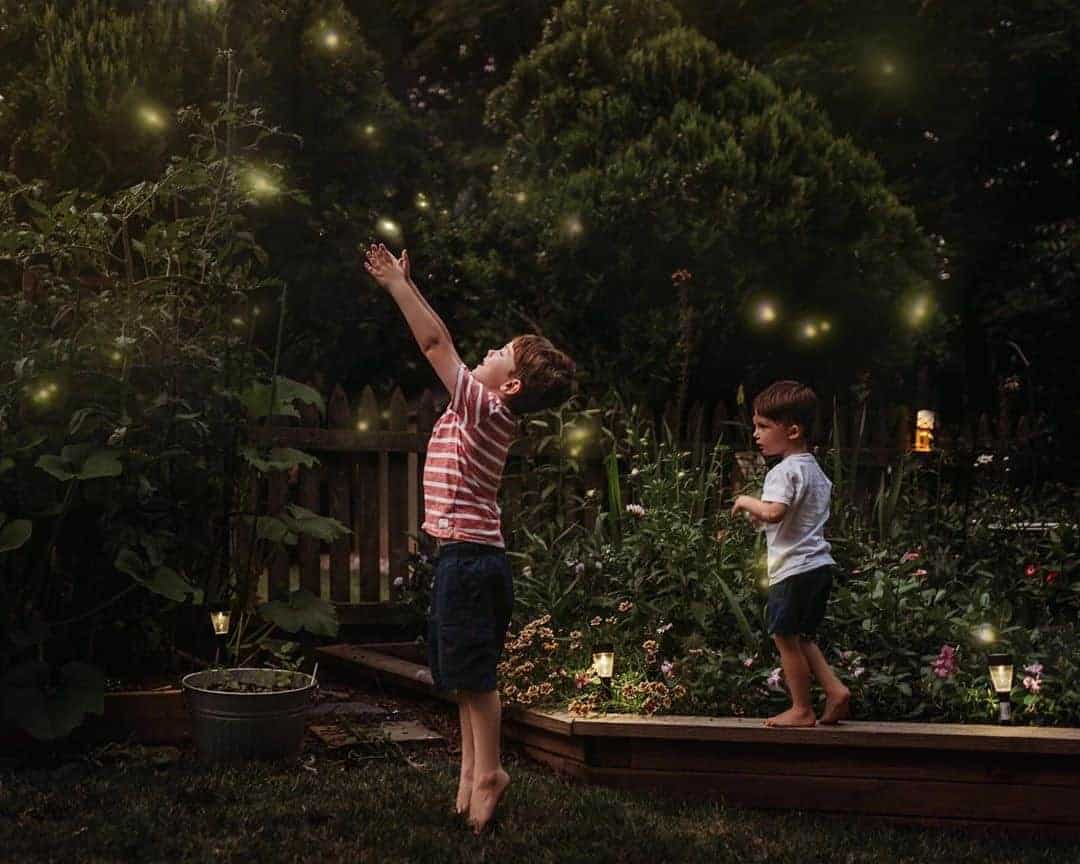 Image credit: desirea_corbett
Image credit: desirea_corbett
Firefly jokes for kids
Q: What kind of food do fireflies like to eat between meals?
A: Light snacks.
Q: What kind of cars do lightning bugs drive?
A: Glow carts.
Q: How are fireflies eco-friendly?
A: They glow green.
Q. Why was the mommy firefly so sad?
A. Her children were not very bright.
Q: What’s the opposite of a firefly?
A: A waterfall.
Q: How do fireflies learn math?
A: With flashcards.
Q: What a firefly’s favorite game?
A: Hide ‘n glow seek.
Q: What did the firefly say to her friend for encouragement?
A: “You glow, girl!”
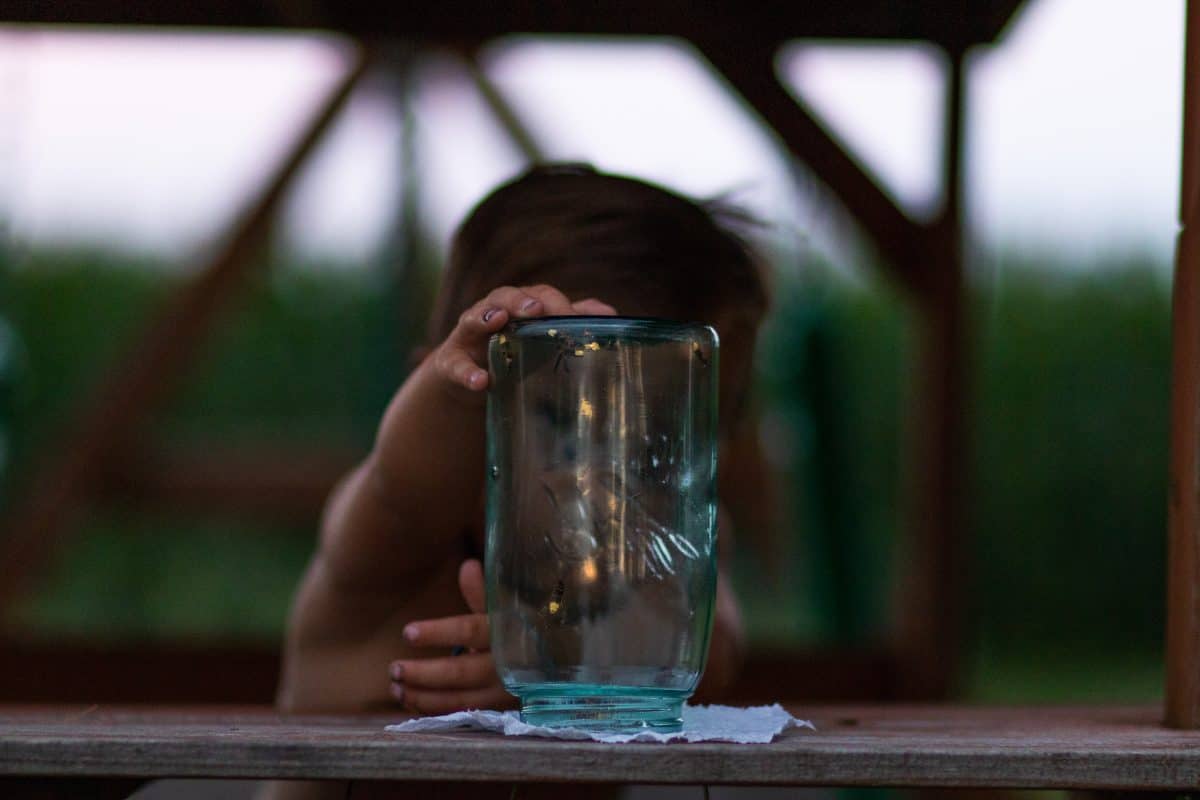 Image credit: @meghangarriott
Image credit: @meghangarriott
Firefly crafts for kids
There are so many fun and creative firefly crafts for kids to do this summer. You’ll find fireflies (or lightning bugs) made from things like paper towel rolls, pinecones, plastic eggs, paper lunch bags, a pipe cleaner, light bulbs, glow sticks, and more. Here are a few of our favorites:
- Cardboard Tube Firefly from Buggy and Buddy
- Firefly Suncatcher Craft from I Heart Arts ‘n Crafts
- Pine Cone Fireflies from Fireflies and Mudpies
- Fireflies Using Bandaids from I Heart Crafty Things
- Fireflies Using Plastic Eggs from Emma Owl
- Glow in the Dark Firefly Jar from Come Together Kids
- Glowing Firefly Craft from Teaching Mama
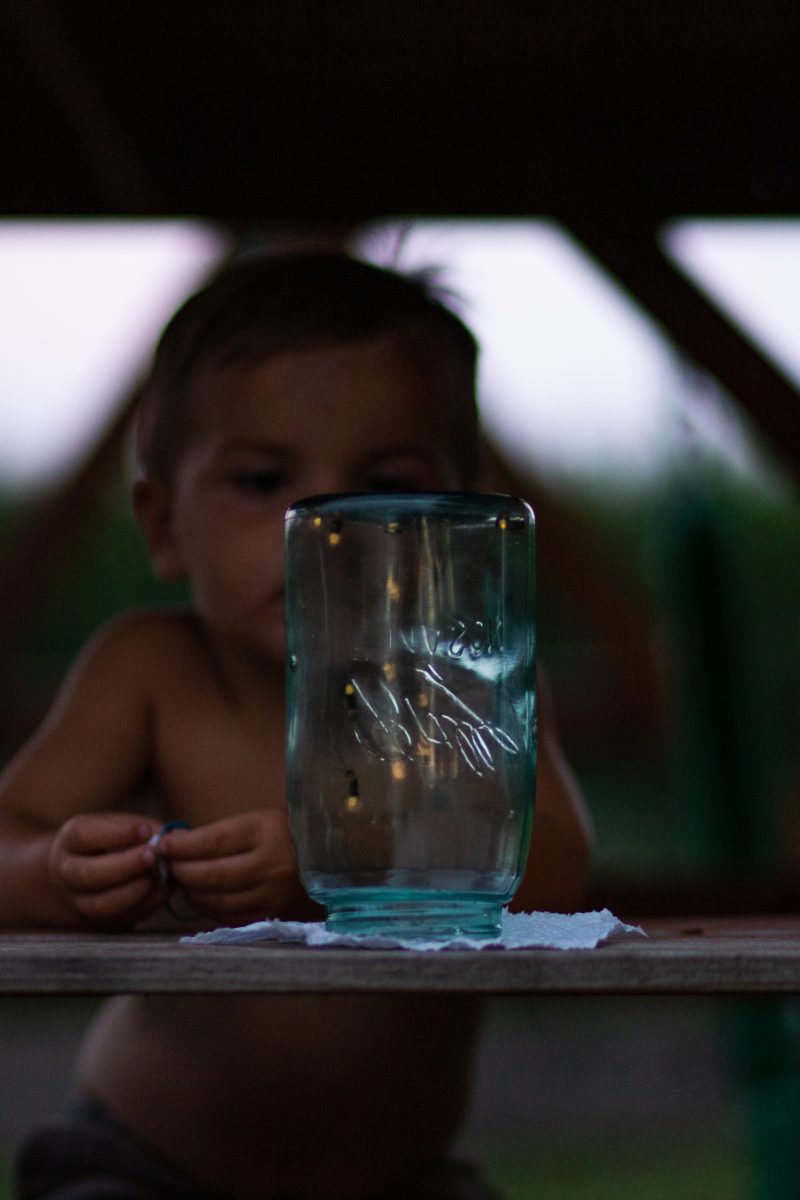 Image credit: @meghangarriott
Image credit: @meghangarriott
Firefly stories from our Creative Team members
Meghan Garriott
Fireflies (or lightning bugs as we call them here in the Midwest), have always been a sign of good things to come, not only in childhood but as an adult as well. My favorite season is summer. Summer is packed full of fun with county fairs, fireworks, late nights, and my birthday (July 4th). While school usually ends in May, the fun stuff doesn’t usually start till the end of June. Here in Illinois, lighting bugs usually make their first appearance from mid to late June. As a child, without a phone or a calendar to tell me the date, the first sight of lightning bugs always got me all excited, knowing the good part of summer was finally here!
Our town celebration and fireworks took place at the end of June. We would play at the carnival with our friends all day, then line up in the back of pickups to watch fireworks at night. When we saw lightning bugs flickering their lights, my friends and I knew it was time to get back to the trucks because the fireworks would soon begin. We loved chasing their lights and seeing how many lightning bugs we could catch before the show began.
The nights are long and late in the summertime. My children, just as I did, love to stay up late. If we were out catching lighting bugs it meant we were going to get to stay up late and play outside! This tradition carries on. As an adult I love seeing the joy they get from something as simple as staying up late and running around outside, in bare feet, to catch lightning bugs. There is so much nostalgia and joy attached to these amazing little lightning bugs. They brought so much joy to me as a child and now in adulthood, they remind me to slow down, relax, and look for the good things to come.
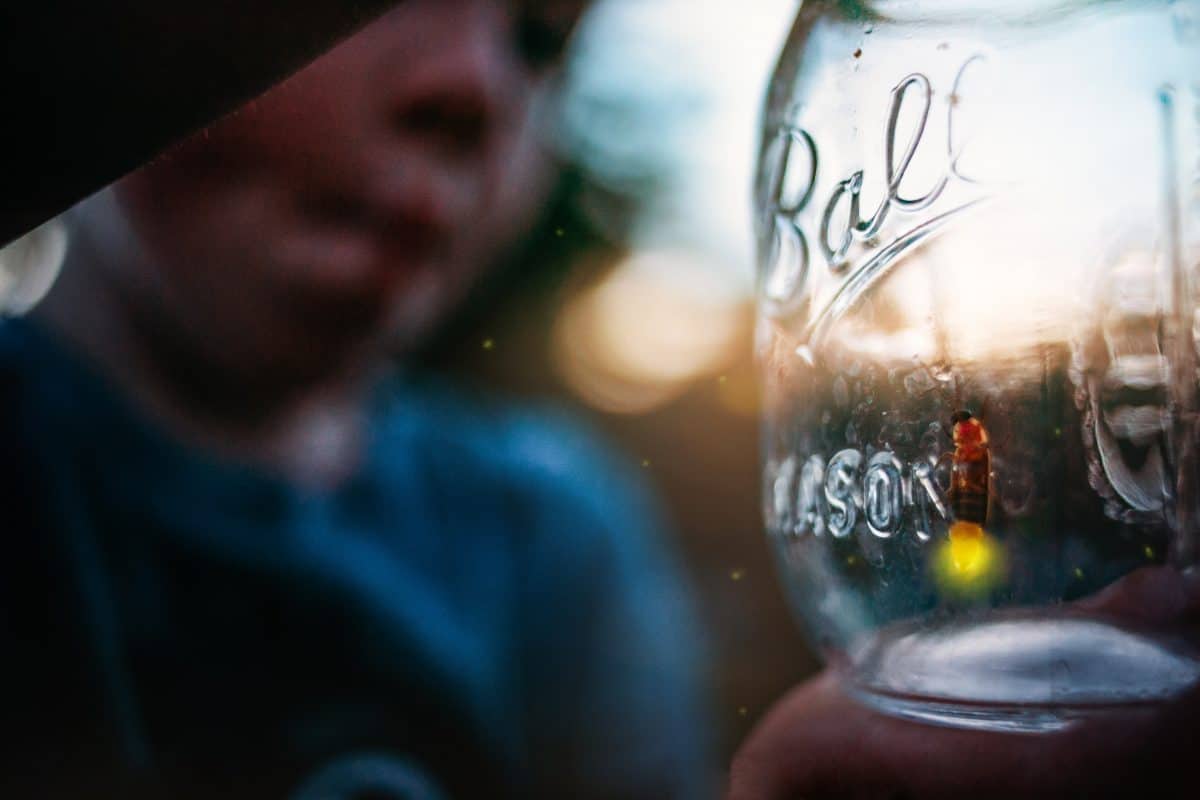 Image credit: @kristcx
Image credit: @kristcx
Kristen Ryan
Catching fireflies is one of those things that’s so nostalgic and takes me right back to being a kid. I love to experience the same activities with my own kids that I did as a child. Here in Oklahoma, fireflies (and their magical flashes of light) only seem to be around for a few short weeks out of the year. So, when they do start to pop up in the early evening hours there is just something so special and magical about them.
My daughter isn’t always on board for catching bugs, but even she can’t help but get excited about one of these magical little creatures landing on her. We love to catch them and then watch them glow as they seemingly float away. I love to try to capture photos these sweet moments year after year. Catching fireflies is one of those fleeting childhood activities that I know may not last forever.
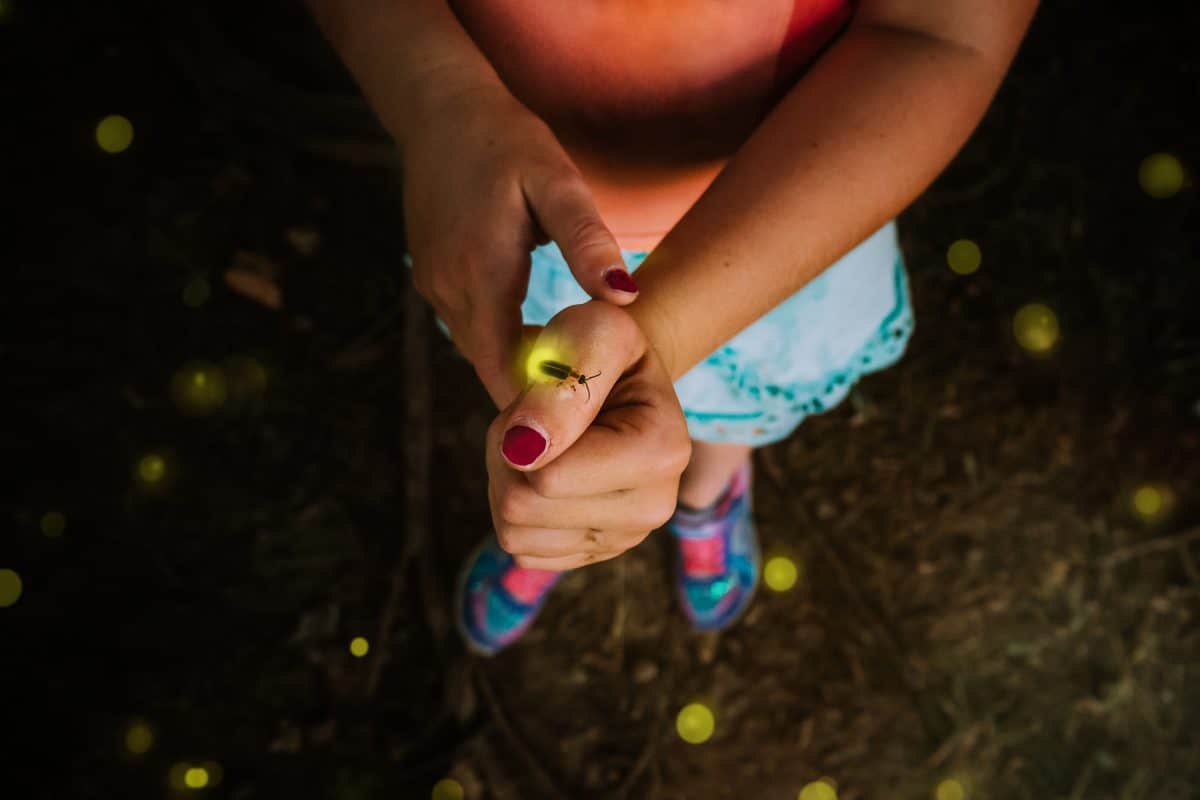 Image credit: @kristcx
Image credit: @kristcx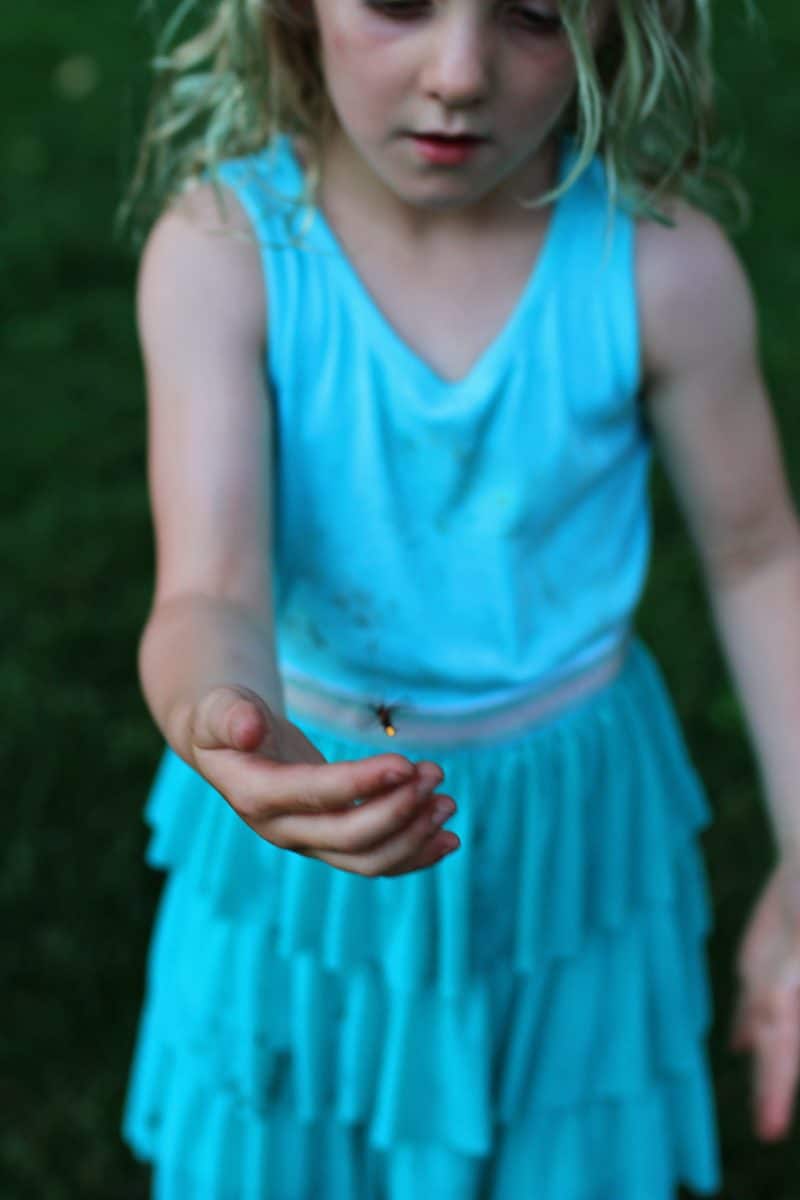 Image credit: @sara_mccarty
Image credit: @sara_mccarty
Sara McCarty
I’m not sure there’s anything I love more in the summer than fireflies. Yes, the pool and ice cream and summer camp are all nice and well, but give me an evening filled outside, filled with the magic of fireflies, and I’m instantly transported back to childhood. Like many kids of the 80s and 90s, my childhood was spent outside, surrounded by nature and a gaggle of cousins. Summers involved tractor rides, swimming in the creek, climbing trees, playing tag, and fishing. But the culmination of any day spent outside was the first twinkle of fireflies.
Fireflies meant something special to us as kids. They meant staying up late and playing outside. They meant camping and cookouts. I’m embarrassed to admit it now, but we’d use the bugs’ light-up parts as jewels and paint to decorate ourselves. We’d fill Mason jars with them, topped with tin foil and a rubber band, and study them as they flew around and lit up. They were fascinating and awe-inspiring.
Experiencing fireflies as a parent is no less magical. Fireflies in our area start appearing mid to late June and continue appearing into August. Just the mention of fireflies and my kids get giddy! They love staying up late to catch them just as much as we did. Even in the suburbs, we have an abundance of fireflies in the evenings and it’s amazing watching all the kids emerge from their houses, clad in PJs to come out, and catch them before heading back in for bed.
It’s so much fun to see the kids’ personalities come out as they catch them. My oldest is fearless and is an expert bug-catcher with ninja-like reflexes. My daughter will catch one and hold onto it, singing and talking to it all night long. Some kids wear gloves because they don’t want to touch them, and others let them crawl all over them! Each kid has a completely different reaction, but they all love them!
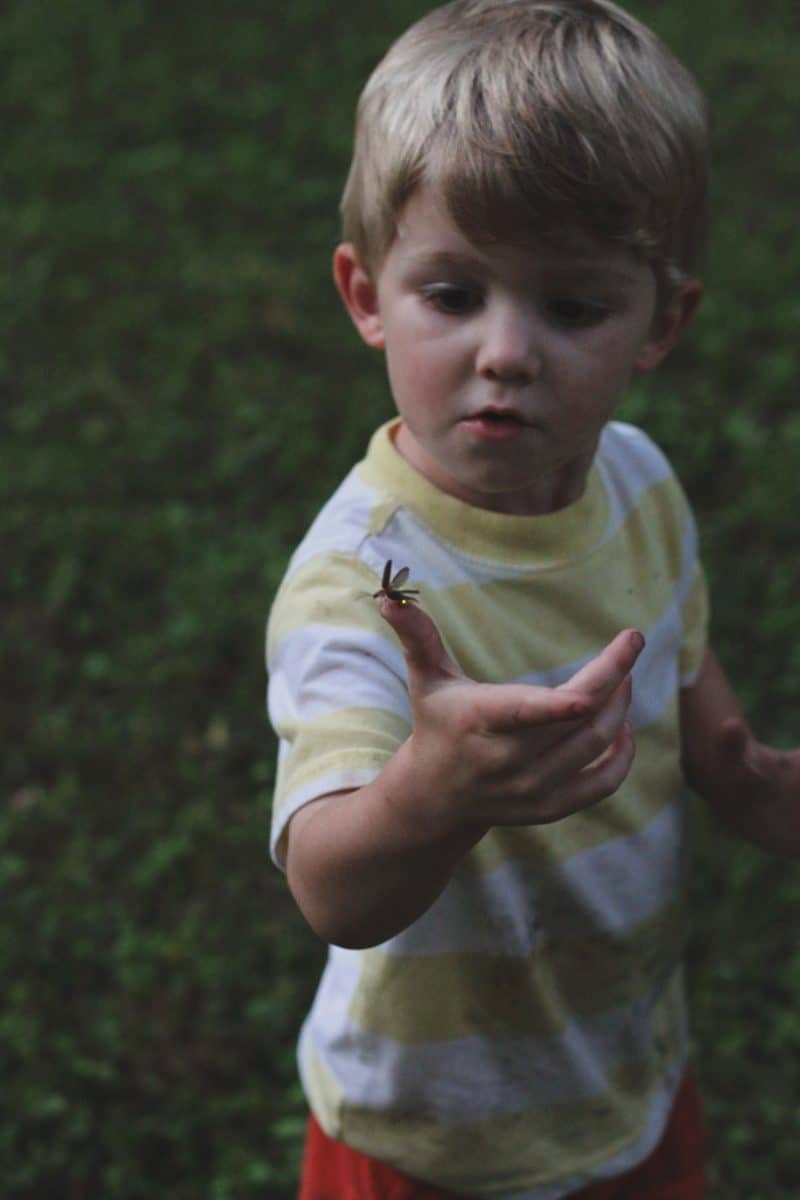 Image credit: @sara_mccarty
Image credit: @sara_mccarty
Katie Fox
Growing up in California, fireflies were essentially mythical creatures only found in books and movies. Of course, unlike bigfoot and unicorns, we knew fireflies actually existed. But despite spending a significant amount of my childhood outside, I never really gave them much thought. It’s true that you just don’t know what you don’t know.
As a parent, I have the privilege of immersing my children in nature and learning right alongside them. As part of our nature-focused learning, my children watch shows that explore nature, such as Wild Kratts, Nature Cat, and Brave Wilderness. These shows often give us a chance to view creatures we otherwise would not see. This is the case with fireflies. I don’t necessarily remember the Wild Kratts episode on fireflies or when my children first watched it. But, I do know that the show and fireflies made an impact on my five-year-old.
We travel around North America in an RV we call home. So, while we are technically from California, we’ve spent a little over a year traveling and exploring parts of the United States. As we traveled, we were on the lookout for local and native animals. We’ve seen some amazing creatures (like banana slugs, kaibab squirrels, elk, roadrunners, dolphins, cardinals, and moose). We knew we were entering their habitats and we knew to keep our eyes peeled for them. Maybe it’s because I’m not a bug person, but it didn’t even occur to me to look them up as we traveled. But that is the beauty of wildlife and nature, I didn’t need to know about them to accidentally find them.
When we entered Nebraska and pulled into Windmill State Park, spotting new animals was not on our radar. After a long travel day and a humid afternoon spent exploring, my five-year-old was avoiding sleep to the best of his ability. On this particular night, he chose to open the curtain by his bed and look outside. After a few moments, he very excitedly sat up and said with so much enthusiasm and the biggest smile on his face, “FIREFLIES!”
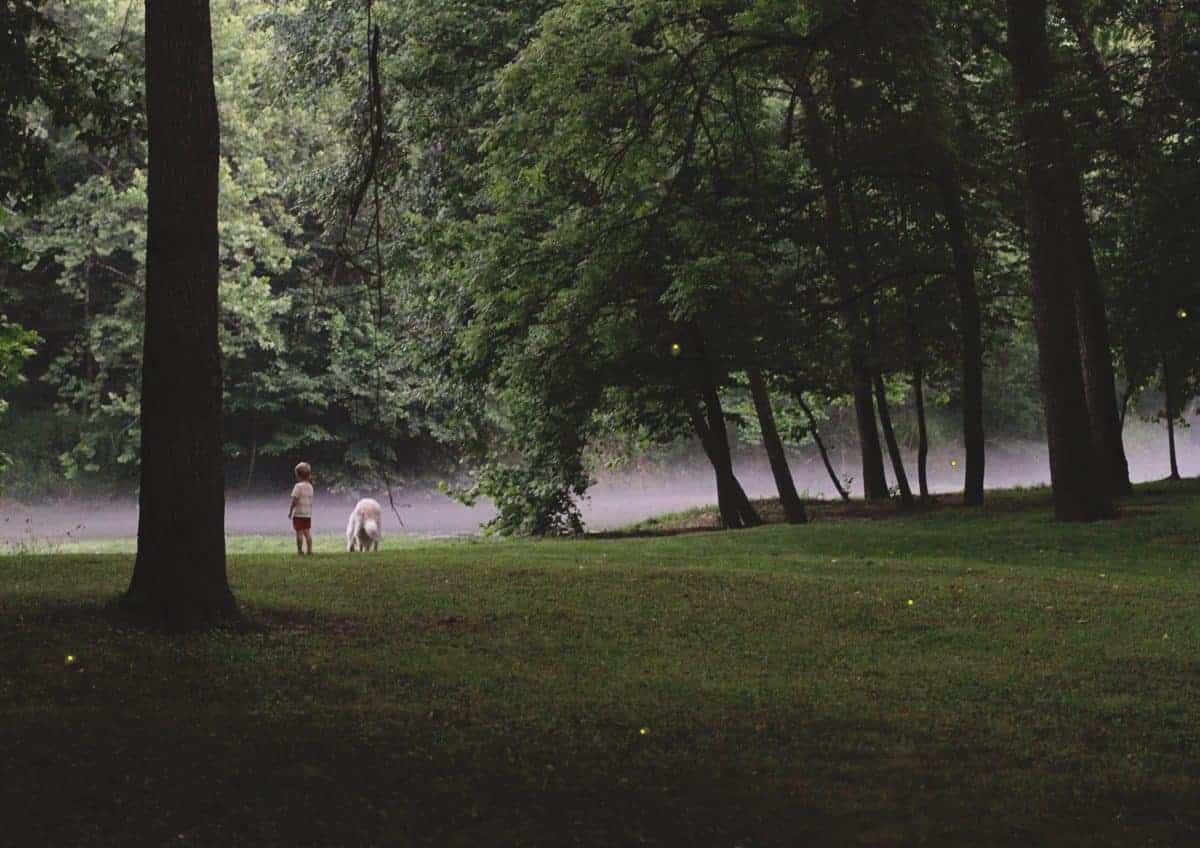 Image credit: @sara_mccarty
Image credit: @sara_mccarty
My partner and I peeked out the window and sure enough, there were little lights blinking on and off everywhere our eyes could see. Dusk never looked so beautiful. I can’t be sure, but I assume what I felt in this moment is what it would feel like to spot Bigfoot in the California Redwoods. Awe-inspiring and totally unexpected. We found beautiful creatures and now we could explore and learn more about them.
It took my five-year-old a significantly longer time to fall asleep that night. But, the twinkling fireflies eventually lulled him to sleep. The next day he talked endlessly about them and I discovered he learned what they were from an episode of Wild Kratts. Like me, he first learned about fireflies through media, but unlike me, was able to experience them in real life during his childhood. That evening, he was ready. He had a net (which we all quickly discovered was not necessary) and his mesh bug cage. Our whole family spent hours outside chasing and catching fireflies. We ran, laughed, rolled in the grass, and had a magical evening among these unexpected illuminated bugs.
In true homeschooling family form, we’ve integrated fireflies into our learning. We rewatched the firefly episode of Wild Kratts, we found them in our bug books and learned a lot about them. I even decided to create printables for us to explore them a bit more through poetry, vintage illustrations, and art.
The best part? We’ve had fireflies visit us every single night since that first night in Nebraska. We’ve traveled through Missouri, Illinois, Indiana, Ohio, and Pennsylvania, and the fireflies dance for us each night. It might have taken me 34 years on this Earth to see a firefly, but my children get to remember them as part of their childhood experience. And for me, giving my children experiences I didn’t have is one of the neatest aspects of parenthood.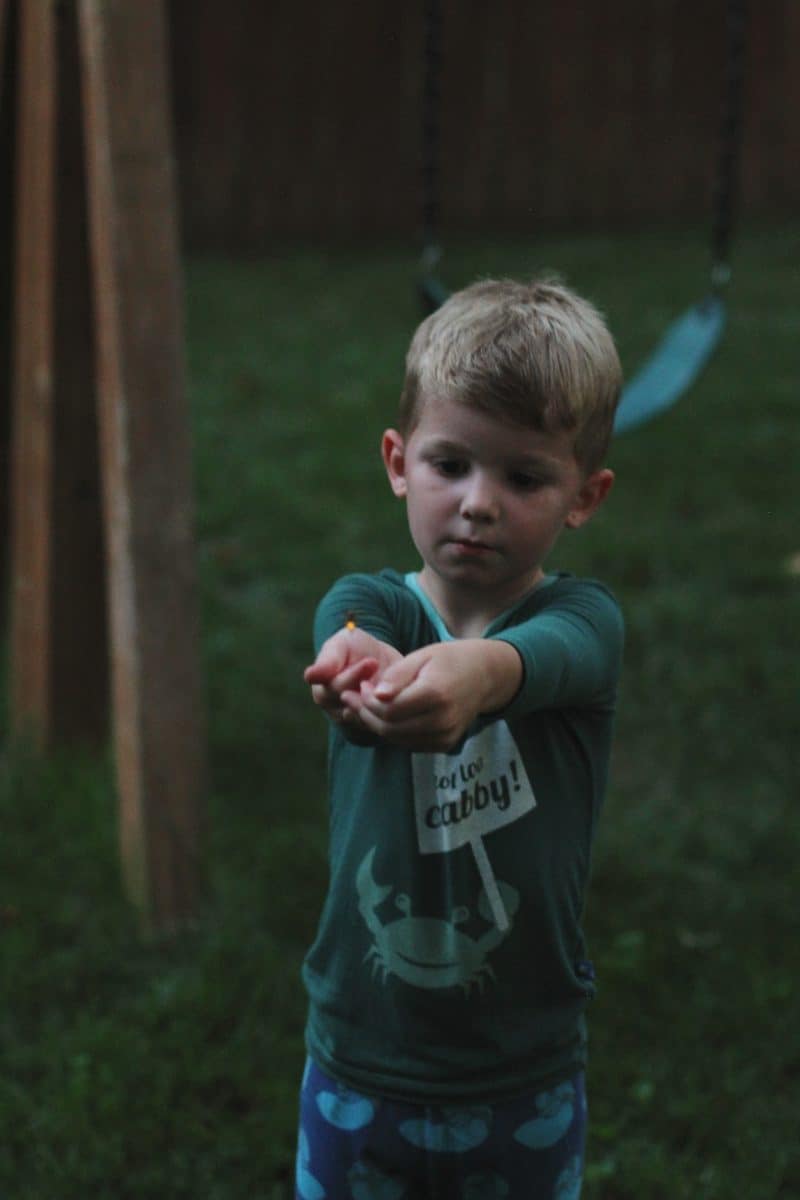 Image credit: @sara_mccarty
Image credit: @sara_mccarty
Firefly nature study printable
If your kids are interested in learning more about fireflies, our Creative Team member Katie Fox put together this incredible instant downloadable packet of materials all about fireflies. It comes with 9 pages of content and is the perfect addition to any summer, insect, garden, or nature study. This printable set supports multicultural learning and all of the content is fact-checked and paired with vintage illustrations to create beautiful nature learning activities. These pages and activities pair well with many nature-focused curricula, nature-based learning, Charlotte Mason and Montessori educational approaches, and so much more. They are very versatile and a great addition to any homeschool, classroom, or learning experience!
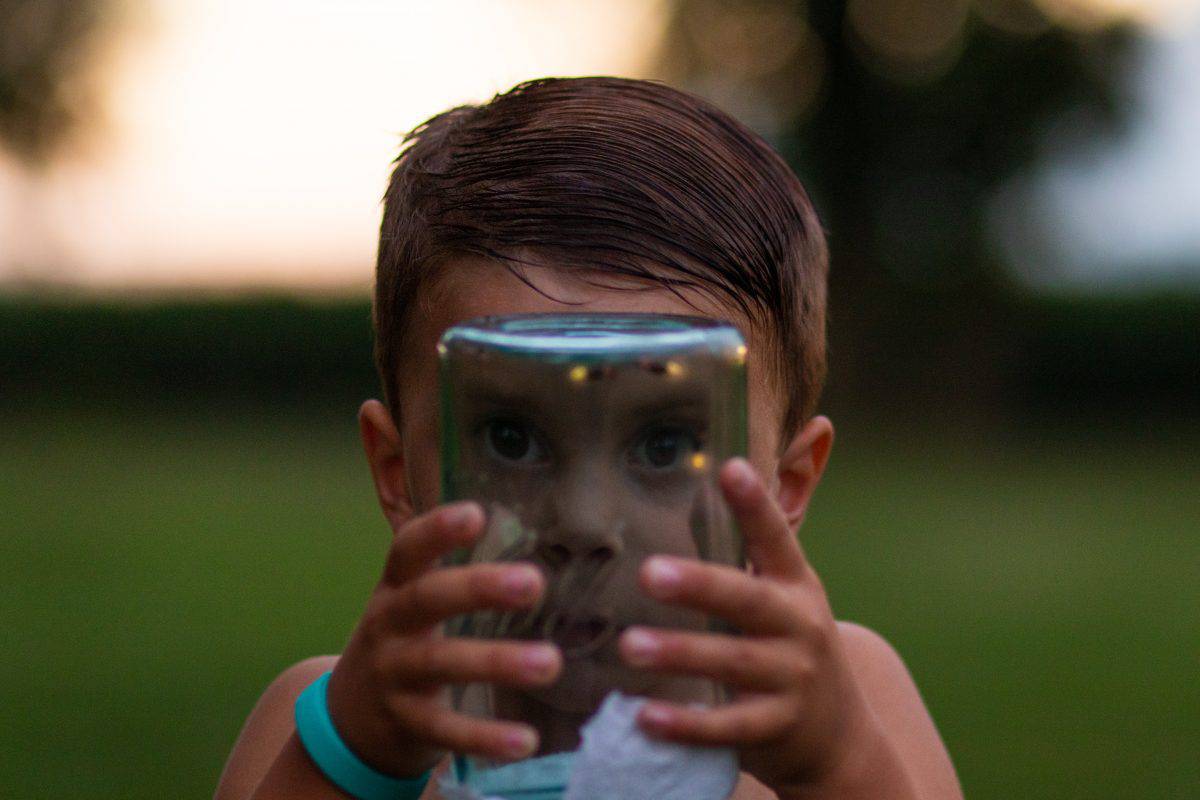 Image credit: @meghangarriott
Image credit: @meghangarriott
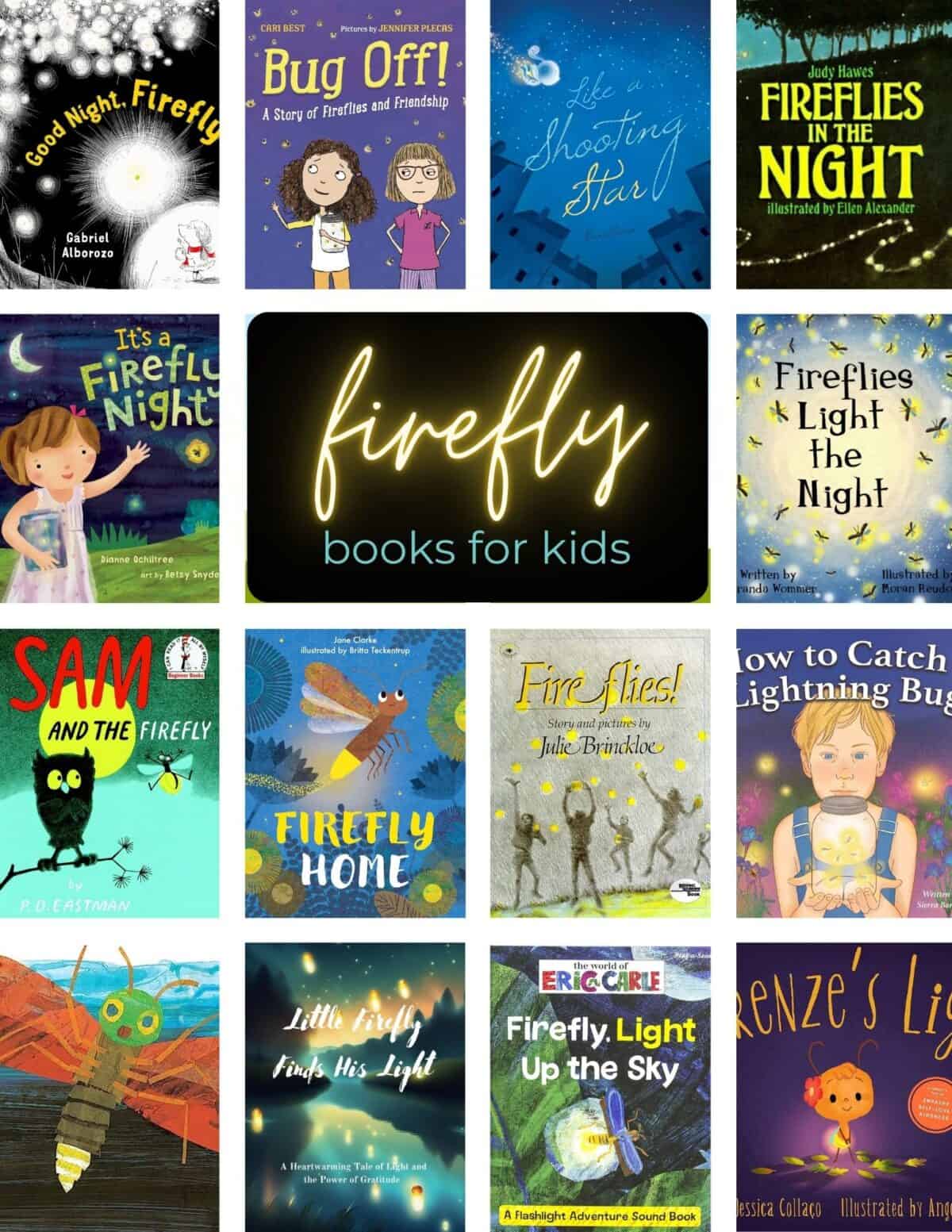
Firefly books for kids
- Good Night, Firefly by Gabriel Alborozo
- Little Firefly Finds His Light by Maggie Blackeney
- Firenze’s Light by Jessica Collaco
- Like a Shooting Star by Rino Alaimo
- The Very Lonely Firefly by Eric Carle
- Sam and the Firefly by P.D. Eastman
- Fireflies Light the Night by Miranda Rose Wommer
- Firefly, Light Up the Sky – Flashlight Pop-Up Adventure Book by PI Kids / Eric Carle
- Fireflies in the Night by Judy Hawes
- Bug Off!: A Story of Fireflies and Friendship by Cari Best
- Fireflies by Julie Brinckloe
- It’s a Firefly Night by Dianne Ochiltree
- Firefly Home by Jane Clarke
- How to Catch a Lightning Bug by Sierra Barnett
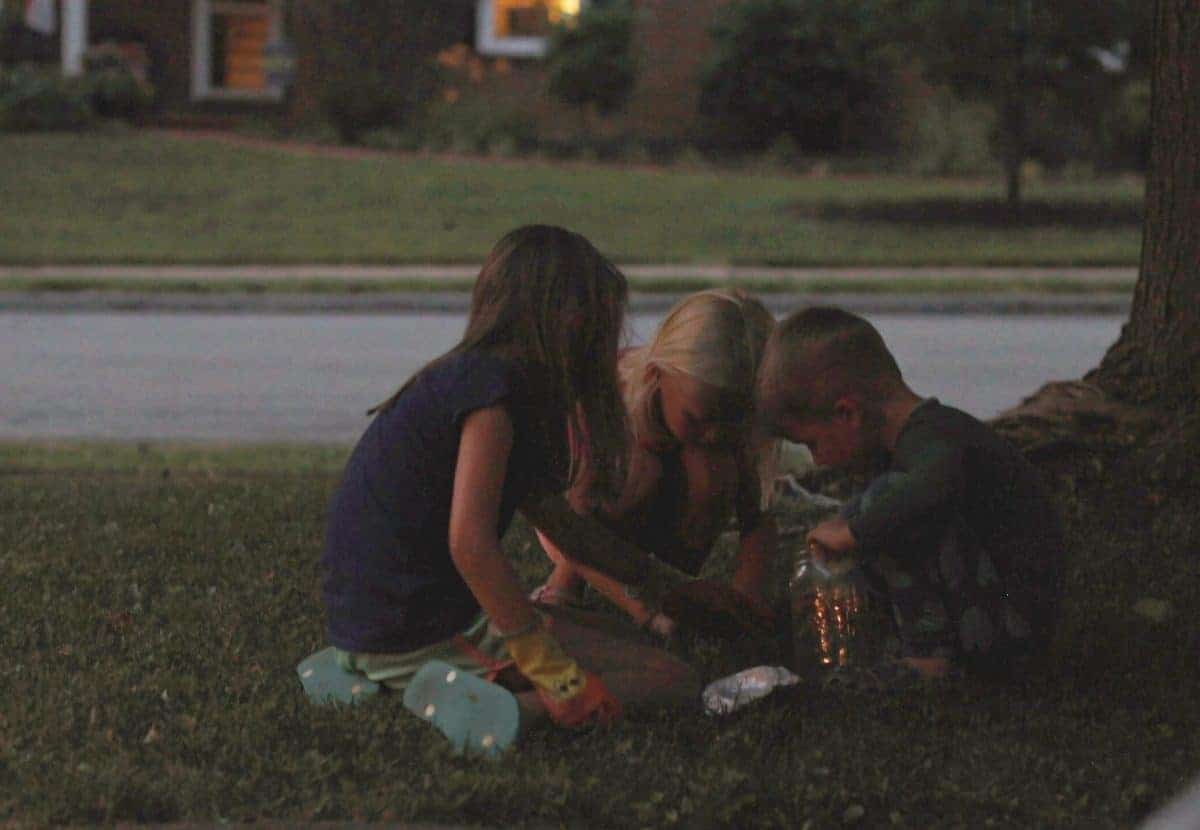 Image credit: @sara_mccarty
Image credit: @sara_mccarty

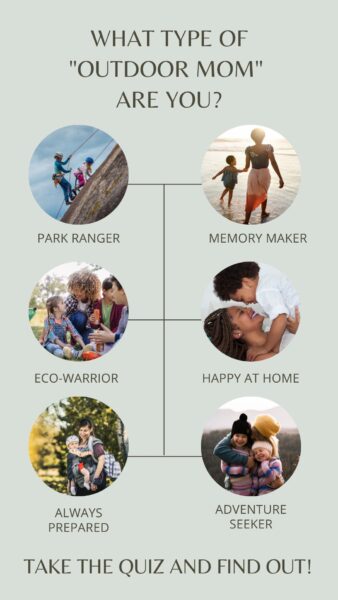






2 comments